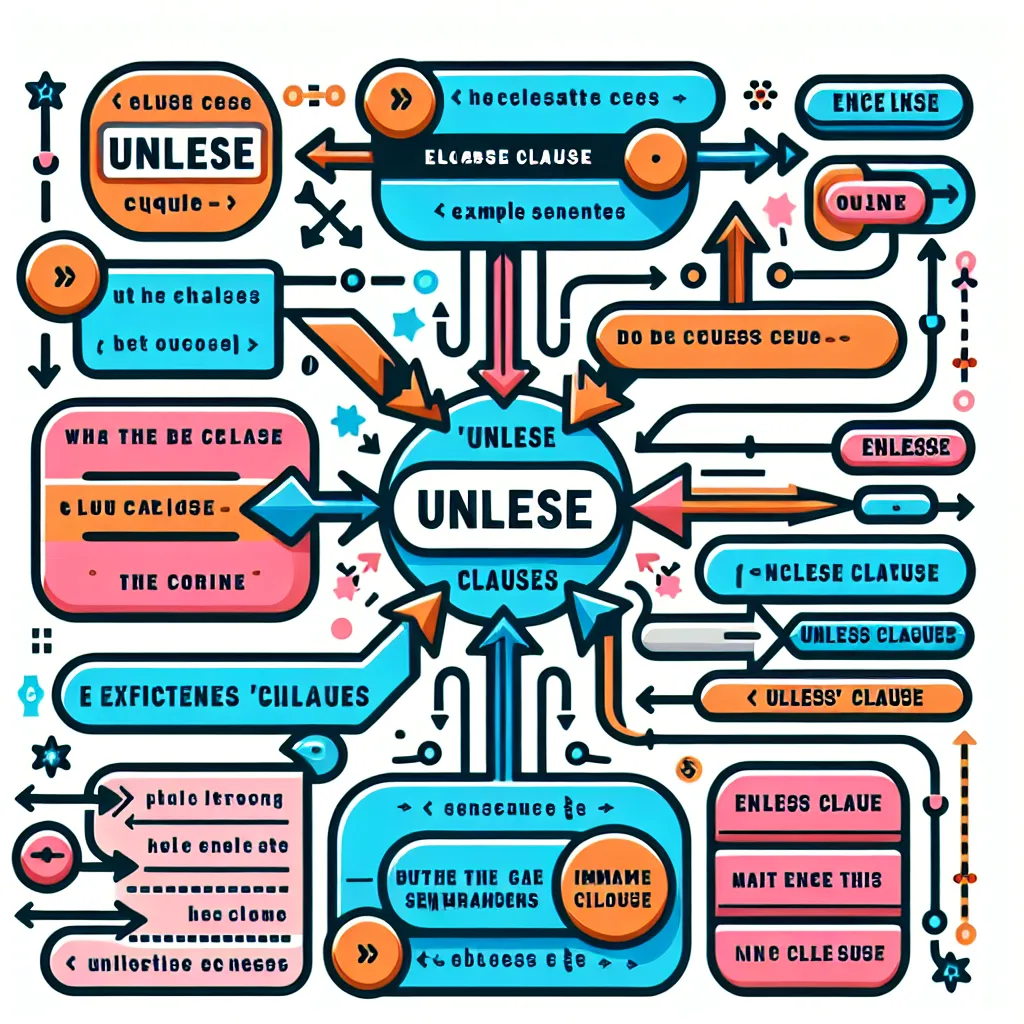The “unless + clause” structure is a crucial grammatical concept that frequently appears in IELTS exams. Understanding and utilizing this structure effectively can significantly enhance your performance across all sections of the test. Let’s delve into the intricacies of this conditional construction and explore how to apply it in various IELTS contexts.
Understanding the “Unless + Clause” Structure
“Unless” is a conjunction that introduces a condition, typically meaning “if not” or “except if.” It’s used to express that something will happen or be true only if a particular condition is not met. This structure is essential for expressing conditional relationships in English and is particularly valuable in academic and professional contexts.
Formula:
Unless + [condition], [main clause]
For example:
- Unless it rains, we’ll go for a picnic tomorrow.
- The project will fail unless we receive additional funding.
- Unless you study harder, you won’t pass the exam.
- The company will go bankrupt unless sales improve dramatically.
- Unless the government intervenes, the economic crisis will worsen.
In each of these examples, the “unless” clause presents a condition that, if not met, will result in the outcome described in the main clause.

Applying “Unless + Clause” in IELTS Writing
In IELTS Writing, using “unless” can demonstrate your ability to express complex ideas and relationships. It’s particularly useful in Task 2 essays where you need to discuss conditions, consequences, and hypothetical situations.
Task 2 Essay Example:
Topic: The impact of technology on traditional cultures
“Traditional cultures are at risk of disappearing unless governments take active steps to preserve them. While technological advancements have brought numerous benefits, they have also led to the homogenization of global culture. Unless we make conscious efforts to maintain cultural diversity, we risk losing valuable traditions and knowledge. However, it’s not just about preservation; unless traditional cultures can adapt to the modern world, they may become irrelevant. Therefore, a balanced approach is necessary to ensure cultural survival without impeding progress.”
In this example, the “unless” clauses help to create a nuanced argument by presenting conditions and potential consequences. This sophisticated use of grammar can contribute to achieving a higher band score in the “Grammatical Range and Accuracy” criterion.
Utilizing “Unless + Clause” in IELTS Speaking
Incorporating “unless” into your IELTS Speaking responses can showcase your ability to express complex ideas fluently. It’s particularly useful in Part 3, where you’re expected to discuss abstract concepts and hypothetical situations.
Example response for a question about environmental conservation:
“I believe that environmental degradation will continue unless governments worldwide implement stricter regulations. However, regulations alone won’t be sufficient unless individuals also take responsibility for their actions. We might see a significant improvement in our ecosystem unless corporate interests continue to prioritize profit over sustainability. It’s a complex issue, and unless we adopt a multi-faceted approach, we’re unlikely to see real change.”
Using “unless” in this way demonstrates a high level of grammatical control and the ability to express conditional relationships, which can contribute to higher scores in the “Grammatical Range” and “Fluency and Coherence” criteria.
“Unless + Clause” in IELTS Reading and Listening
While you won’t be directly tested on your ability to use “unless” in the receptive skills sections, understanding this structure is crucial for comprehending complex texts and conversations.
Reading Example:
“The experiment will fail unless the temperature is maintained at exactly 20°C throughout the process.”
Understanding this sentence is critical for answering questions about experimental conditions or potential outcomes.
Listening Example:
“The flight will be cancelled unless weather conditions improve within the next hour.”
Recognizing the implication of this statement is essential for answering questions about travel plans or potential disruptions.
Common Mistakes and How to Avoid Them
-
Double negatives: Avoid using “not” with “unless.”
Incorrect: “Unless you don’t study, you won’t pass.”
Correct: “Unless you study, you won’t pass.” -
Confusing “unless” with “if not”:
Incorrect: “If not you hurry, we’ll miss the train.”
Correct: “Unless you hurry, we’ll miss the train.” -
Using the wrong tense:
Incorrect: “Unless it will rain, we’ll go out.”
Correct: “Unless it rains, we’ll go out.” -
Misplacing commas:
Incorrect: “We’ll go to the beach unless, it rains.”
Correct: “We’ll go to the beach unless it rains.” -
Using “unless” for positive conditions:
Incorrect: “Unless you want to succeed, you should study hard.”
Correct: “If you want to succeed, you should study hard.”
Strategies for Mastering “Unless + Clause”
- Practice rephrasing “if not” sentences using “unless.”
- Create your own sentences using “unless” in various contexts.
- Analyze sample IELTS essays and speaking responses that use “unless” effectively.
- Use “unless” in combination with other conditional structures to express more complex ideas.
- Incorporate “unless” into your daily English usage to make it feel more natural.
Conclusion
Mastering the “unless + clause” structure is a valuable skill for IELTS success. It allows you to express conditional relationships with precision and sophistication, potentially boosting your scores across all sections of the test. Remember to practice using this structure in various contexts and to be mindful of common mistakes. By incorporating “unless” clauses into your English repertoire, you’ll demonstrate a higher level of language proficiency and increase your chances of achieving your desired IELTS score.
For further practice, consider working on tasks that involve expressing conditions and hypothetical situations. You might encounter prompts such as:
- Discuss the future of a specific industry unless significant changes occur.
- Describe the potential consequences for a city unless environmental policies are implemented.
- Explain how education systems might evolve unless traditional methods are maintained.
By tackling these topics and consciously incorporating “unless” clauses, you’ll be well-prepared to showcase your grammatical range and accuracy in the IELTS exam.